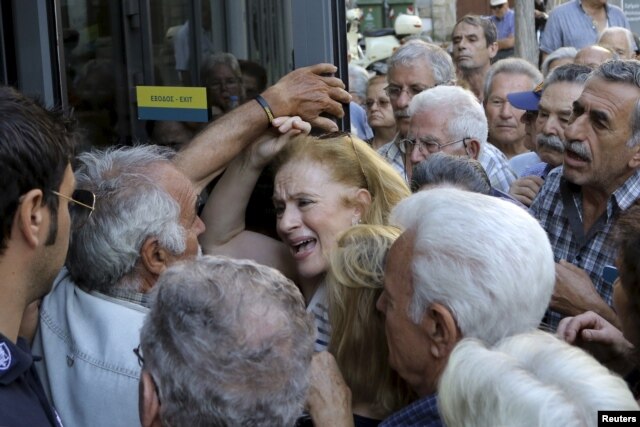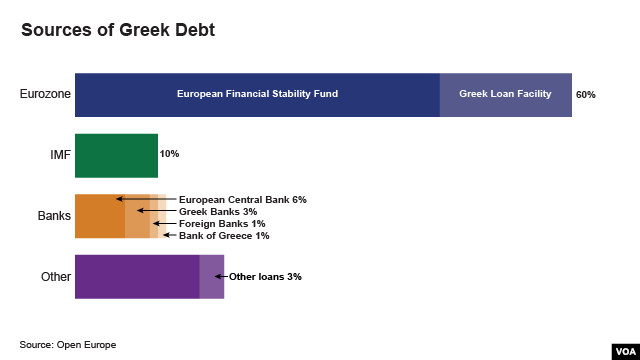Greek Parliament to Vote on Reform Proposals

The Greek parliament meets Friday to decide whether to endorse reforms proposed to European finance ministers in exchange for more bailout money, as Greece struggles to keep its economy afloat and remain within the eurozone.
Late Thursday, Prime Minister Alexis Tsipras’ government delivered its latest reform proposal to Europe’s finance ministers, who must decide whether they will grant the struggling government another desperately-needed package of loans.
Little information is available about what is in the new package from Athens. But reports say it includes EU demands for a boost in some sales taxes and cuts in spending.
A pensioner (C) reacts as she tries to enter a National Bank branch to receive part of her pension at the city of Iraklio in the island of Crete, Greece July 9, 2015.
Possible eurozone ouster
Failure of Greece and the EU to reach a deal could lead to Greece being ousted from the eurozone — the 19 European nations that use the euro as their common currency.
French President Francois Hollande told reporters Friday that the new Greek proposal is «serious and credible,» and said Greece has displayed a determination to remain in the eurozone.
The entire 28-member European Union will hold an emergency summit Sunday to consider the Greek situation.
Some EU leaders call this absolutely Greece’s last chance to satisfy their demands. They have been frustrated and fed up with what has so far been Athens’ refusal to carry out more austerity.
Greeks have said they have suffered enough from spending and pension cuts that have cost jobs and lowered their standards of living, and the government has demanded a debt restructuring from the International Monetary Fund.
Withdrawal limits
Greek banks are closed and withdrawals at cash machines are limited to just $67 (60 euros) a day. Many store shelves are bare and gas stations dry with no one knowing exactly what is going to happen next.
Greece defaulted on its $1.8 billion loan payment to the International Monetary Fund last week when European finance ministers refused to extend the bailout that would have allowed Greece to pay the IMF.
Greek voters rejected more austerity in a referendum last Sunday. While some Greeks say it is essential for the country to remain a part of Europe economically, «no» voters accused the EU creditors of humiliating and enslaving them.
Greece’s economic troubles began in earnest in 2009 when it was revealed that the old conservative government badly underreported the country’s debt. The revelations came during the same time the global recession began to worsen.



